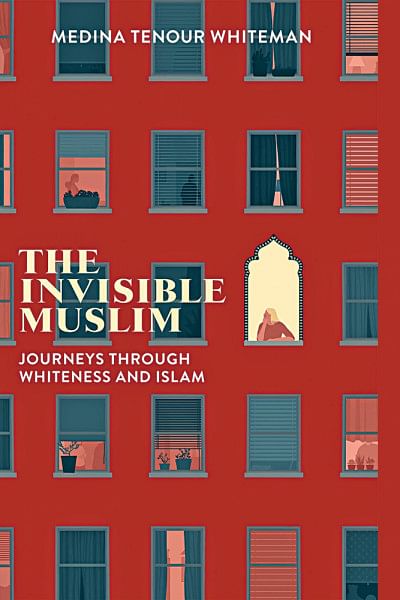On White privilege and Islam

Islam is practised by 1.6 billion people across the world. But when you grow up in a predominantly Muslim country like Bangladesh, it can often exist as a localised concept in your head. Travelling to distant shores and witnessing Islam in a foreign country can evoke a mild, albeit delightful shock. I remember my first congregational prayer at East London mosque, rubbing shoulders with Muslim women from every corner of the world. That Eid, I experienced the vastness of the Ummah both physically and spiritually, an age-old, billion-strong unity that transcends borders and backgrounds. I was humbled and moved beyond words.
I found that same sense of amazement, multiplied tenfold, while reading The Invisible Muslim: Journeys Through Whiteness and Islam (February, 2020). In a beautifully tapestried memoir, writer-poet and musician Medina Tenour Whiteman captures her lifelong reconciliation of her White and Muslim identities, taking us along on a spiritual journey from Kenya to Tanzania, India to Turkey, Iran to Bosnia and Herzegovina, and Spain to Britain, highlighting the richness of Islam's history and diversity with a refreshing honesty. A keen observer, she offers a remarkably balanced, well-researched account of the Muslim world, with nine pages of resource material expanded upon at the back of the book. Each chapter in her book is a mini travelogue comprising of life and historical events crafted with eloquent writing and sharp-witted humour.
Where are you from? This is a question every person of colour living in the UK has received at least once during their lifetime. Medina poses this question to talk about the 'otherness' people of colour are often subjected to at the hands of White privilege. Be it that inexplicable anxiety at UK Border Control after a long flight or the hellish experiences many immigrants like myself get embroiled in with the Home Office, Medina's observations as an "invisible Muslim", of those who are visibly one, are astonishingly accurate—a rarity. Having more than one identity can be a work in progress—Medina, the Anglo-American daughter of Sufi parents born in Granada, Spain who grew up in Essex, Britain, has many. And perhaps that is why her memoir felt so relatable to me, a brown Bangladeshi woman settled in London, despite the stark difference in our skin colours, passports, and hence lived experiences.
In examining her privileges, Medina speaks up about racism against Blacks, White people's appropriation of Africa (the "ghost of European colonialism, reincarnated as a tourism that objectifies and exploits"), and the prejudices that exist within Arab and South Asian communities that "are still guilty of anti-Black oppression, in fact we are often some of the worst culprits". In the chapter "Love in a Lacuna, Sex and Marriage", she navigates the tricky waters of these topics in Islam, from intercourse to divorce, and sex education to app dating, forcing us to think of our religion in ways many of us have simply not been taught.
The Invisible Muslim celebrates diversity in the Muslim world in all its nuanced forms and shades. It offers a topical read to better understand the anti-racism conversation raging across the world right now as well as a case study of what it means to be a Muslim in the West in the 21st century. Candid personal reflections interlaced with insightful analysis of world affairs both old and new make it a valuable addition to the list of modern day memoirs.
For Muslims who wish to explore Islam through the lens of history and the varied lived experiences of the Ummah across the world, including the oft-overlooked lives of converts, this book can be a treat. As for non-Muslims who wish to examine White privilege while diversifying their bookshelves to do mandatory anti-racist work, Medina's memoir is a good place to start.
Samira Ahmed is an Air Traffic Control Engineer based in the UK. She blogs about millennial motherhood, books, feminism and immigrant life @the.millennial.ma.

 For all latest news, follow The Daily Star's Google News channel.
For all latest news, follow The Daily Star's Google News channel. 



Comments